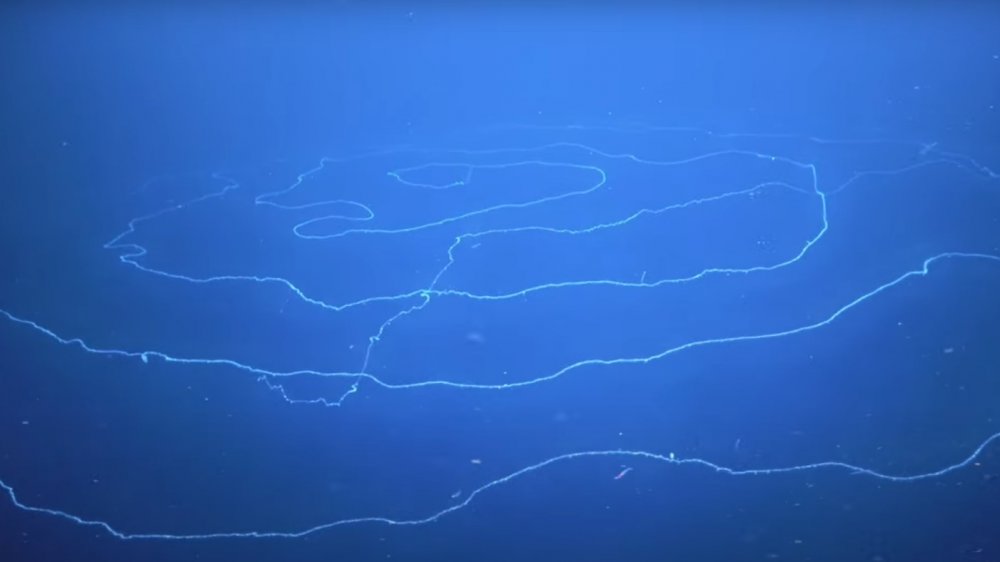'Longest Animal Ever' Discovered Off Australian Coast
The world is a large and intimidating place. Largest and most intimidating of all is the wet part: oceans cover some two-thirds of the planet, and remain an overwhelmingly unplumbed mass of borderline alien intrigue. According to our best estimates, life started in the briny depths some two billion years before it got the gumption to try breathing air for once, so creatures living in the seas have had a good long time to break all of our dirt-kicking laws of nature. They're weird, and, thanks to the vast and unforgiving environment below the water's surface, it is entirely likely that much of it will remain unexplored.
On those occasions when researchers do get an opportunity to fill us in on the Avatar-adjacent world underwater, they frequently find themselves in the unenviable position of collectively sounding like the booger eating weird kid in class who swears he discovered a new animal on summer break. Their findings seem unreal. The broadly defined lines delineating what is and isn't an organism break down in a difficult-to-follow, seemingly stream of consciousness description of some new beast.
Keeping all of that in mind, LiveScience reports that scientists working off the coast of Australia have found "seemingly the largest animal ever discovered." And yes, it's funky.
The long and short of it is...
The creature in question is 150 feet long, which is certainly something to celebrate. It's also a siphonophore, which we'll explain for anyone that didn't grow up saying "my favorite animal is the siphonophore."
According to Developmental Dynamics, a siphonophore is a colony of multicellular organisms, or zooids, each serving as a specific chunk of anatomy for a collective communal body: Gastrozooids are responsible for eating, tentaculozooids serve as graspers and reachers. Gonozooids get down to the business of making more siphonophores, the little rascals.
Put them all together, and they create a siphonophore; a bizarre, meters-long example of how nature will greenlight just about anything. The one in question was found by researchers being funded by the Schmidt Ocean Institute. Piloting a remotely operated vehicle off of western Australia, they were examining previously unexplored regions of the ocean, and giant siphonophores weren't their only big discovery — they "also discovered large colonies of glass sponges," which, if you Google them, also sound so made up.

